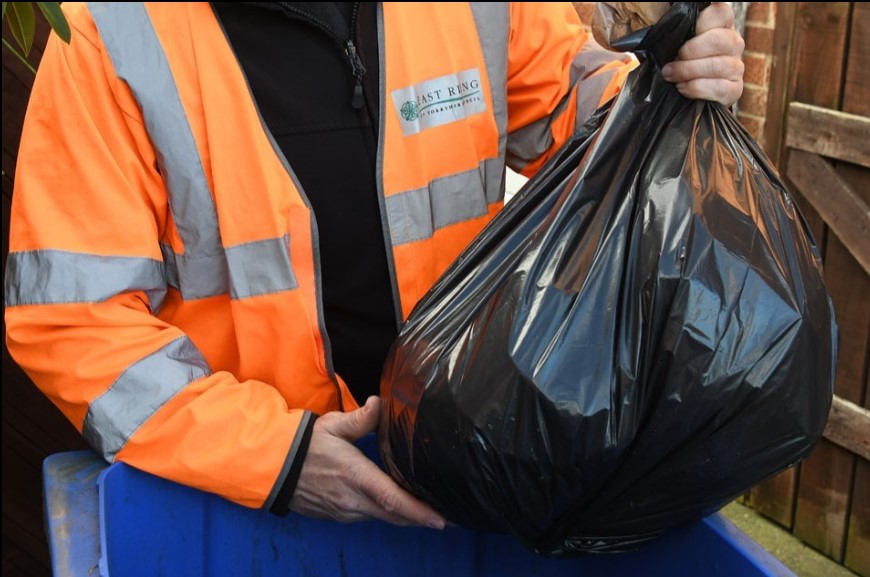A new bin tagging campaign has been launched in the East Riding to encourage residents to keep all waste in their blue bins loose - and not to put any recycling into plastic bags.
Throughout this year, East Riding of Yorkshire Council's bin collection crews and waste and recycling officers will be placing orange tags on any blue bins they find that contain recycling placed inside bin bags.
The tags are a polite warning, stating plastic bags of any colour are not accepted in blue bins.
On the next collection day, if that bin still contains recycling in bags, that bin won't be emptied and will be tagged again with an explanation why.
Tags won't be placed on blue bins where recycling is kept loose.
The council has introduced the tagging scheme because recycling being placed in plastic bags is becoming a growing issue and causes major problems in the recycling process.
This is because:
- the bags can't be opened at recycling plants,
- the waste inside can't be separated or recycled,
- the bags can damage sorting machines,
- bin crews can't check to make sure the correct items are inside bins before emptying.
Leaving items loose can make sorting the waste quicker and more efficient for the recycling plant the council uses.
More items can also fit inside wheelie bins when they are loose.
Councillor Paul West, the council's cabinet member for environment and transport, said: "Residents in the East Riding are still some of the best recyclers in the country, but plastic bags in blue bins cause a problem that we need to fix.
"It's very important to keep items loose in blue bins so we can make sure as much is recycled as possible."
The waste and recycling team held a similar tagging campaign in 2017 which focused on food waste.
That tagging scheme urged people to empty all food waste into brown bins, not into green bins, and successfully led to more food waste being recycled than ever before.
As a result, brown bin waste increased by 1,600 tonnes - the equivalent weight of more than 14 million apples.




